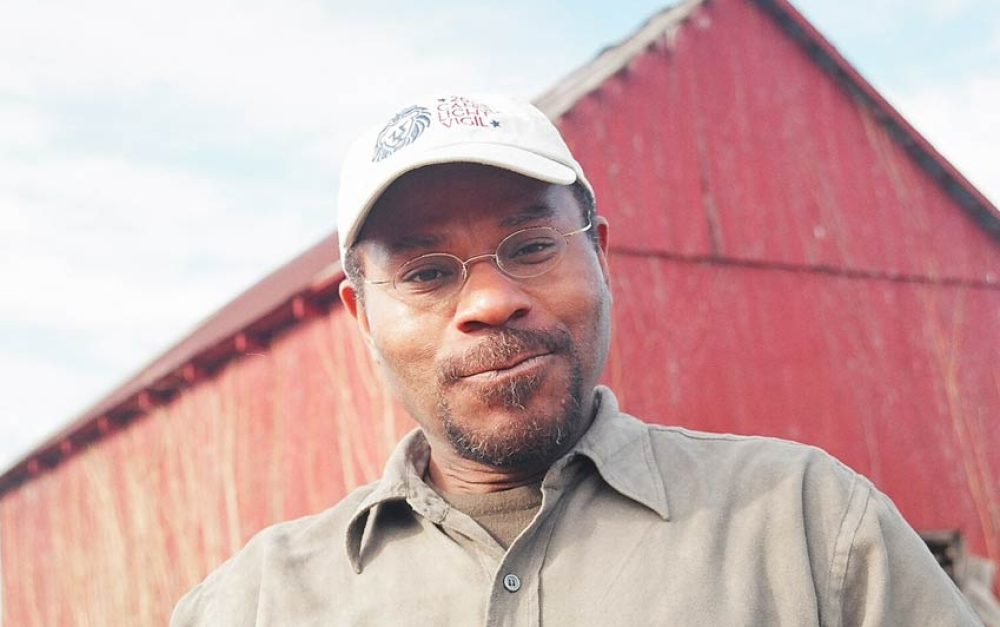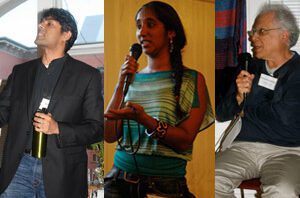In the 1960s, Black-led protests over police brutality and other discriminatory practices inspired other marginalized groups of people to join social change movements. Fifty years later, it feels as if we are at a similar historical moment, alive with possibilities. Is the food movement ready to step into this moment?
As Audre Lorde said in a speech at Harvard in 1982, “The ’60s were … vital years of awakening, of pride and of error. Even though we fought common enemies, at times the lure of individual solutions made us careless of each other. Sometimes we could not bear the face of each other’s differences because of what we feared those differences might say about ourselves.” The movement for Black Lives, among others, is urging us not to look away, but to look deeply at how we are treated differently — and to act on what we see.
Leading the way
We can all take a lesson from Shirley Sherrod, a woman I’ve admired since first meeting her more than two decades ago. Shirley has a long history in the civil rights movement. Unfortunately, she is best known as the USDA employee who was forced out of her job due to the machinations of a conservative blogger. But Shirley is also a mother, a farmer, an organizer, a person of faith and a black woman, among other identities — and she assumes that everyone she meets has that same complexity.
Shirley grew up in a farm family in southwest Georgia. Her father was shot in the back on his own land by a white neighbor who was never brought to justice. Over the course of her life, she’s worked with academics, philanthropists, Ben & Jerry’s and Willie Nelson — as well as countless farmers of all colors, many of them women. From Shirley, I learned how difficult it has been for institutions like the Federation of Southern Cooperatives to help Black, Native and Latino farmers get the loans they needed to operate.
For me, Shirley’s life and work embodies what Audre Lorde was talking about at Harvard when she said:
We share a common interest, survival, and it cannot be pursued in isolation from others simply because their differences make us uncomfortable.
Shirley Sherrod is one of my sheroes because, despite the violence, threats and harassment she has endured, she is open to being in relation to anyone — and that’s critical to her successful career as an advocate for farmers.
This is the work
Audre Lorde also told her Harvard audience “There is no such thing as a single-issue struggle, because we do not live single-issue lives.”
We keep this at the forefront of our work here at PAN. Our efforts to improve farmworker health, for example, are intertwined with immigration reform and the right to organize. To build the public will necessary to influence national farm policy, we develop campaigns that have farmers, farmworkers and others in the lead. We prioritize engagement with the people most likely to be harmed by the food system’s status quo, because we believe that the best solutions — as well as the power to put us over the top — come from these communities.
To build the collective strength we need to reorient our priorities, each of us has to find the shared values in others’ issues — and seek out proactive ways to demonstrate our commitment to one another. To do anything less in 2016, I think, is to be on the wrong side of history.
So I’m glad that, to participate in the national conversation about racist police practices, scores of environmental groups have publicized their support of the movement for Black lives. Grassroots food justice leaders were asked to describe the links between their work along the food supply chain and #BlackLivesMatter. Black farmers and academics outlined the historical and socio-economic context for food, farming and racial justice.
“All the organic carrots and farmers’ markets in the world are not going to end hunger unless we also end racism,” Food First’s Eric Holt-Gimenez recently said. He continues:
We need to be building a restorative society, complete with a restorative system of justice and a restorative food system. For that we need to dismantle racism in our society, in our food system and in our own food movements … It is the work.
Taking on systemic racism is a tall order. It requires tearing up our old notions of outreach and diversity to look deeply at the root causes of the issues we’re committed to. One of the most striking things about the 1960s was how many people were willing to step outside their comfort zones. It was idealistic and sometimes problematic, but without taking risks we won’t make progress.
Photo: Elvert Barnes | Flickr








